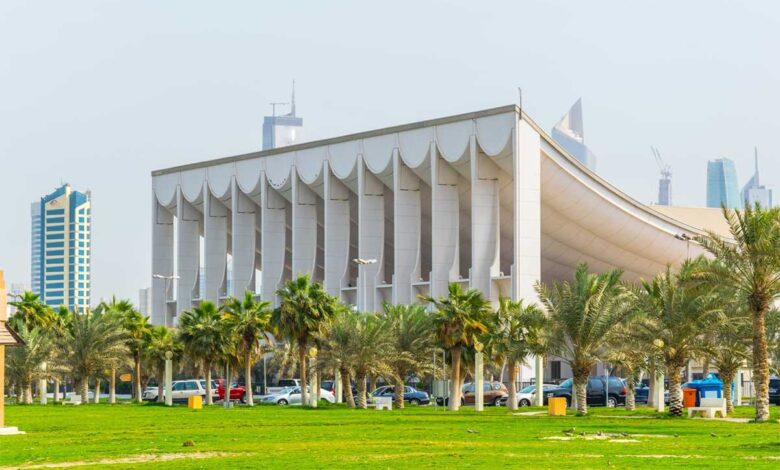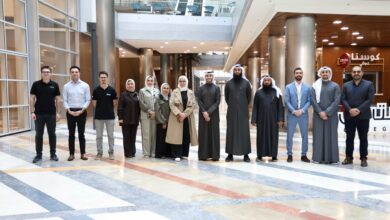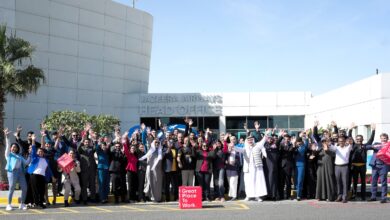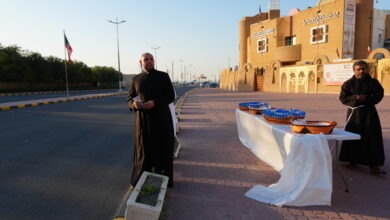A new premier to lead a new government

His Highness the Amir Sheikh Mishal Al-Ahmad Al-Jaber Al-Sabah issued an Amiri decree on 15 April appointing Sheikh Ahmed Abdullah Al-Ahmad Al-Sabah as the new prime minister. The decree stated that, “after assessing the constitution and holding traditional consultations, as well as reviewing the Amiri order issued on 28 Ramadan 1445 AH, corresponding to April 7, 2024 AD, accepting the resignation of the Prime Minister:
“We ordered the following: Article One: Sheikh Ahmed Abdullah Al-Ahmad Al-Sabah shall be appointed Prime Minister, and he will be charged with nominating members of the new cabinet, and presenting their names to us to issue a decree appointing them. Article Two: The Prime Minister must implement this order of ours, inform it to the National Assembly, and it shall come into effect from the date of its issuance and publication in the Official Gazette.”
Sheikh Ahmad Al-Abdullah brings with him a wealth of experience having served previously in several ministerial positions, including in the Oil and Information ministries (2009-2011), in Health (2005-2007), and in Finance and Communications (1999-2001). He also held positions in the banking and finance sectors, including as Board Chairman of Burgan Bank (1987-1998). Prior to his appointment as the premier, he was Chief of the Diwan of the Crown Prince from 2021.
Born in 1952, Sheikh Ahmad did his primary studies in Kuwait and Lebanon before traveling to the United States for graduate studies. In 1976, he graduated with a bachelor’s degree in Business Administration, Finance (Banking and Investment) from the University of Illinois. He is said to be a strong advocate for the use of technology in advancing the progress of the country, supports the role of digital transformation in diversifying the economy, and promotes the streamlining of procedures to enhance the welfare of Kuwaiti citizens.
News of the appointment was greeted enthusiastically by many among the public, who expressed hope that the new premier would help bring an end to the constant bickering in parliament, and focus on introducing reforms and implementing policies and plans that would drive sustainable development in the country, and ensure the welfare of the people and the nation.
The announcement of a new premier was welcomed with less keenness by several legislators who cautioned that their cooperation with the new government was conditional on it presenting a realistic work program that fulfills reform requirements and tackles essential issues. They also added that their cooperation hinged on the incoming government being focused on key priorities such as enhancing the living standards of the citizens and appointing qualified ministers.
MP Saleh Ashour expressed his hope that the new government formation would include competent ministers capable of effectively managing the country in the upcoming phase, with a strong focus on addressing the needs of citizens and improving their quality of life. Other MPs called for selecting ministers who possess the capacity to handle political responsibilities, and comprehends the seriousness of unresolved and stagnant issues.
For his part, MP Muhalhal Al-Mudhaf criticized the potential inclusion of “past figures who had failed in ministerial roles” — an oblique reference to the grilling of the new premier in 2007, while he was the health minister. He also cautioned against a government that fails to steer political progress in the right direction.”
Meanwhile, media reports indicate that the National Assembly is expected to hold its first session on Sunday, 21 April, in line with the constitutional deadline for a session of parliament to be held two weeks from election date.
Prior to the first parliamentary session around 41MPs attended an informal parliamentary coordination meeting held on 14 April, which aimed to prioritize issues for the upcoming legislative session. Speaking to the media after the event, MP Saud Al-Asfour indicated that “high on the list of priorities are addressing the high cost of living, social assistance, the Election Commission, extending judicial authority to matters of nationality, and amending election laws.”
The overwhelming espousal by legislators for prioritizing issues such as the living standards and welfare of citizens, and the need to appoint capable ministers, are understandable given their importance to the public. However, it is unfortunate that none of the lawmakers had anything to say on the slow pace of project developments, or the lack of structural reforms needed to move the country forward.
Nor did any MP voice concern over the latest State Audit Bureau report on the poor quality of education, and lack of institutional reforms needed to improve teaching and learning methodologies in public schools. In its scathing report, following evaluation of Kuwait’s public education strategy for the period from 2005 to 2025, the State Audit Bureau noted that the strategy, which is slated to end next year, “did not achieve its goals regarding bringing about institutional reform in the public education sector.”
In its report to the Ministry of Education, the Bureau requested a study into the reasons for the lack of improvement in the quality of education despite the passage of nearly 20 years and the allocation of over KD71 million for the integrated education reform system. The Audit Bureau lamented that “Kuwait’s ranking in the field of quality of education and school administration continued to decline, as shown in results of international measurements during the years of implementation of these projects.
The Bureau also pointed out that Kuwait lagged globally, and it occupied last place in the Gulf on the global competitiveness index on education quality, in the fiscal years 2016/2017-2017/2018. It also occupied the penultimate position in the Gulf in the school administration quality index in the fiscal years from 2015 to 2018, during the years of implementing these projects.”
In its response to the Bureau report, the permanent committee at the Ministry of Education, responsible for responding to the Breau’s observations, emphasized that “the Educational Research and Curricula sector at the ministry has been diligently working since the launch of the strategy to achieve its objectives, especially regarding the fourth goal concerning basic standards and requirements for curricula. The sector also organized conferences on education, including those on comprehensive quality, in collaboration with international bodies.
Additionally, the Curriculum Development sector has designed new curricula and courses using modern methods that prioritize self-research and information deduction, avoiding indoctrination. While designing modern curricula and learning methodologies are important, it is equally crucial to measure and evaluate the success in implementation of these programs and policies. The 2019 global ‘Trends in International Mathematics and Science Study’, which evaluates fourth and eighth graders, found Kuwait trailing among the bottom five countries in terms of education level in mathematics and science.
A previous report by the World Bank after evaluating its multi-year education modernization program in Kuwait — which was held in collaboration with the Ministry of Education, and the National Center for Education Improvement — concluded that political instability and changes in top-tier education officials, as well as frequent turnover of trained staff from the national cadre, due to retirement or other reasons, led to less than desired commitment by all stakeholders to the overall program goals.
Education is the foundation of any society as it prepares people to live cohesively in a community, participate politically, and contribute economically. Quality of education, and the institutional reforms needed to achieve this, are vital to nurturing youth who are equipped to be the future drivers of the country’s growth and progress, as well as to produce capable leaders of tomorrow. We hope the new government in office will pay heed to the Audit Bureau’s latest observation on education in the country.












